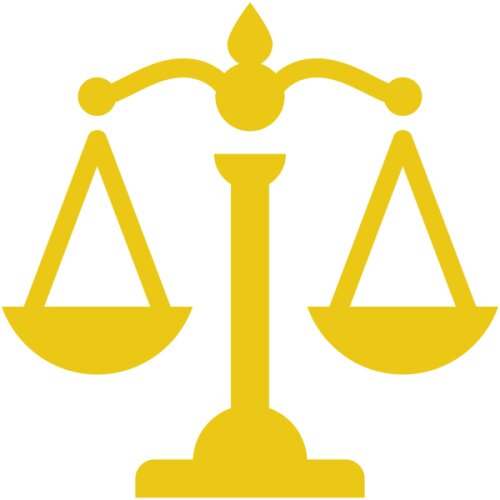Best Domestic Violence Lawyers in Newcastle
Share your needs with us, get contacted by law firms.
Free. Takes 2 min.
Free Guide to Hiring a Family Lawyer
List of the best lawyers in Newcastle, South Africa
About Domestic Violence Law in Newcastle, South Africa
Domestic violence is a significant issue in Newcastle, as it is in other parts of South Africa. The Domestic Violence Act 116 of 1998 governs the legal framework within which instances of domestic violence are addressed. This law provides measures to protect victims and outlines the responsibilities of law enforcement and the justice system in such cases. In Newcastle, as with the rest of South Africa, domestic violence encompasses not just physical abuse but also emotional, verbal, psychological, and economic abuse, as well as harassment or stalking.
Why You May Need a Lawyer
There are several situations where individuals may require legal assistance in cases of domestic violence. If you or someone you know is experiencing any form of abuse by a partner, family member, or cohabitant, seeking legal advice can help ensure protection and justice. Legal support may be needed to obtain a protection order, navigate the complexities of the legal system, represent you in court, or provide guidance on rights and available remedies. Additionally, a lawyer can be essential in cases where misconceptions about the law or fears of retaliation deter victims from coming forward.
Local Laws Overview
The key legislation governing domestic violence in Newcastle is the Domestic Violence Act of 1998. This Act protects victims by allowing them to apply for protection orders against perpetrators. It requires the police to respond swiftly and effectively to allegations of domestic violence and empowers them to arrest offenders without a warrant in certain circumstances. The law defines domestic violence broadly, ensuring comprehensive coverage for various forms of abuse. Victims can also receive assistance and referrals from national and local support services.
Frequently Asked Questions
What constitutes domestic violence under South African law?
Domestic violence includes physical, emotional, verbal, psychological, and economic abuse, as well as intimidation, harassment, stalking, and damage to property.
How can I obtain a protection order in Newcastle?
You need to apply at the Magistrate's Court with jurisdiction in the area where you or the perpetrator reside. Court officials will assist you in completing the necessary forms.
What is an interim protection order?
An interim protection order is a temporary order that provides immediate protection to the victim, pending a final order after a court hearing.
Can someone be arrested for violating a protection order?
Yes, violating a protection order is considered a criminal offense and can lead to arrest and prosecution.
What should I do if I am falsely accused of domestic violence?
If falsely accused, seek legal advice immediately to understand your rights and to prepare a defense. Keep any evidence that can support your case.
What role do the police play in domestic violence cases?
Police are required to assist and protect victims of domestic violence. They can arrest a suspected offender, confiscate weapons, and provide information about available support services.
Are there support services available for victims in Newcastle?
Yes, there are local NGOs and shelters that provide support services, including counseling, legal assistance, and temporary accommodation for victims.
Is economic abuse covered under domestic violence law?
Yes, economic abuse, which includes withholding financial resources or denying independent economic access, is recognized as a form of domestic violence.
How long does it take to get a protection order?
An interim protection order can be issued on the same day of application. However, the final order may take longer as it involves a court hearing where both parties can present their cases.
Can men be victims of domestic violence?
Yes, men can also be victims of domestic violence. The law is gender-neutral and aims to protect all victims of abuse.
Additional Resources
Several organizations and government bodies provide assistance for domestic violence cases in Newcastle:
- The Department of Social Development offers support and referrals to appropriate services.
- Local NGOs and women’s shelters provide counseling, temporary accommodation, and legal advice.
- Community Police Forums can be platforms for reporting abuse and seeking help within the community.
- South African Police Service in Newcastle is obliged to assist victims and enforce protection orders.
Next Steps
If you or someone you know is facing domestic violence and needs legal assistance, the first step is to contact a legal professional with experience in domestic violence cases. They can provide guidance on obtaining a protection order and navigating the court system. Additionally, reach out to local support organizations for immediate assistance and counseling. Document all incidents of abuse, as this information will be crucial in court proceedings. Most importantly, ensure that you are in a safe environment when seeking help or making any legal actions.
Lawzana helps you find the best lawyers and law firms in Newcastle through a curated and pre-screened list of qualified legal professionals. Our platform offers rankings and detailed profiles of attorneys and law firms, allowing you to compare based on practice areas, including Domestic Violence, experience, and client feedback.
Each profile includes a description of the firm's areas of practice, client reviews, team members and partners, year of establishment, spoken languages, office locations, contact information, social media presence, and any published articles or resources. Most firms on our platform speak English and are experienced in both local and international legal matters.
Get a quote from top-rated law firms in Newcastle, South Africa — quickly, securely, and without unnecessary hassle.
Disclaimer:
The information provided on this page is for general informational purposes only and does not constitute legal advice. While we strive to ensure the accuracy and relevance of the content, legal information may change over time, and interpretations of the law can vary. You should always consult with a qualified legal professional for advice specific to your situation.
We disclaim all liability for actions taken or not taken based on the content of this page. If you believe any information is incorrect or outdated, please contact us, and we will review and update it where appropriate.









